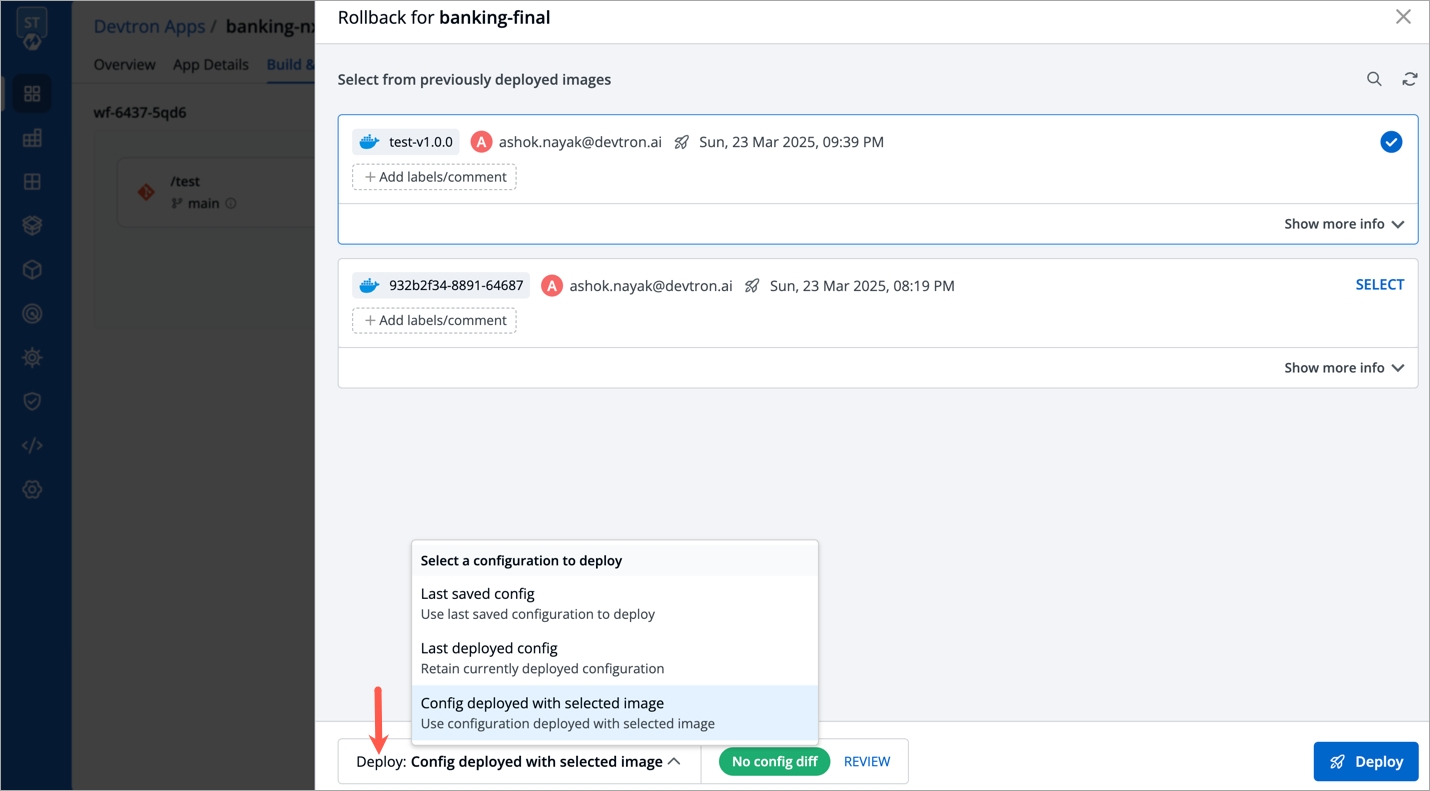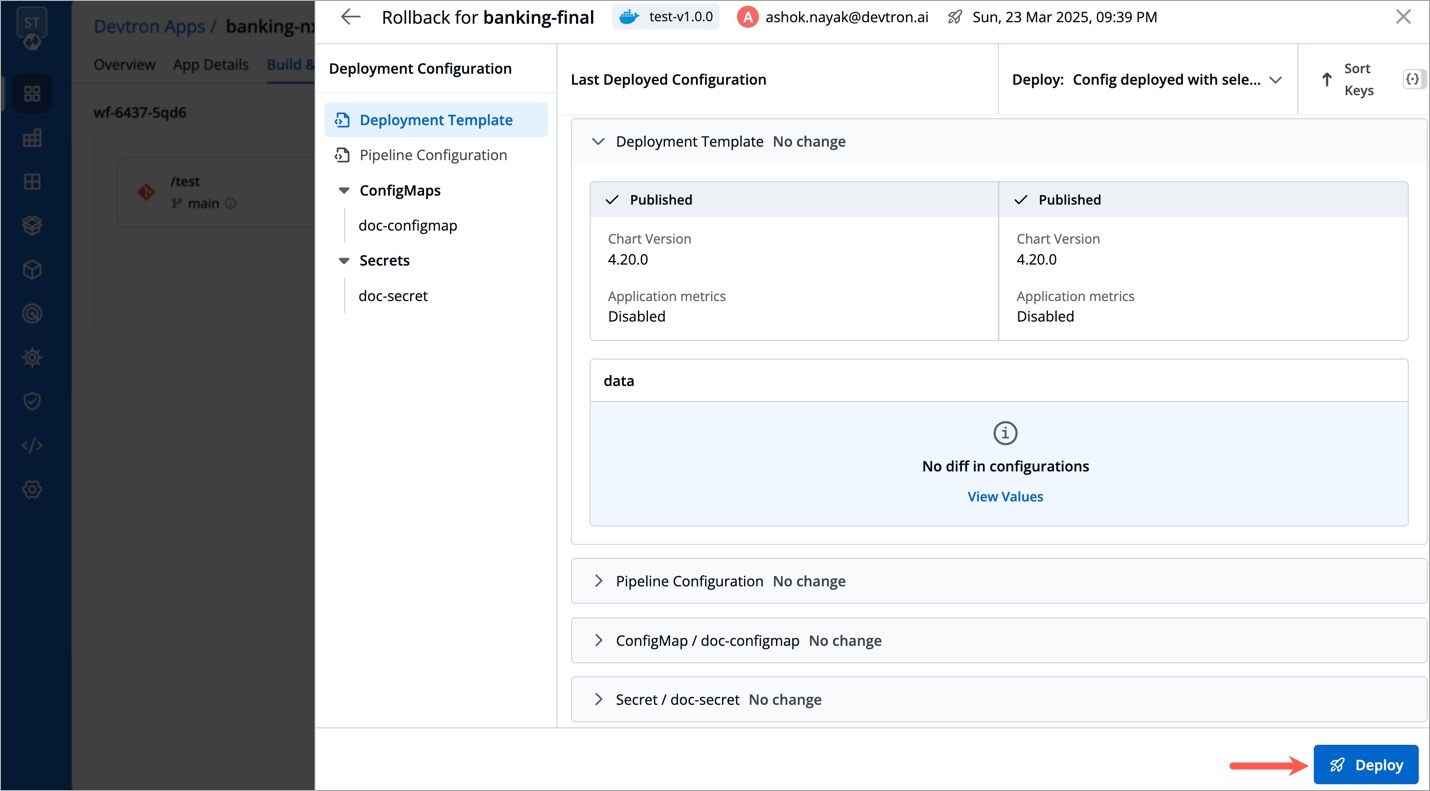Rollback Deployment
Deployments can be rolled back manually. After a deployment is completed, you can manually rollback to a previously deployed image by retaining the same configuration or changing the configuration.
As an example, You have deployed four different releases as follows:
V1
C1
R1
V2
C2
R2
V3
C2
R3
V3
C3
R4
V3
C4 (saved but not deployed)
-
If you want to roll back from V3 image to V2 image, then you have the following options:
Config deployed with selected image
V2
C2
Last deployed config
V2
C3
Last saved config
V2
C4

Select
Rollbackin your deployed pipeline.On the
Rollbackpage, select a configuration to deploy from the list:
Last saved config
Deploy the image with the latest saved configuration.
Last deployed config
Deploy the image with the last deployed configuration. As an example: The configuration C3.
Config deployed with selected image
Deploy the configuration which was deployed with the selected image. As an example: The configuration C2.
Once you select the previously deployed image and the configuration, review the difference between
Last Deployed Configurationand the selected configuration.Click
Deploy.

The selected previously deployed image will be deployed.
Note:
There will be no difference in the configuration if you select
Last deployed configfrom the list.When you select
Config deployed with selected imageand if the configuration is missing in the selected previously deployed image, it will show asConfig Not Available. In such cases, you can select eitherLast saved configorLast deployed config.
Last updated
Was this helpful?

